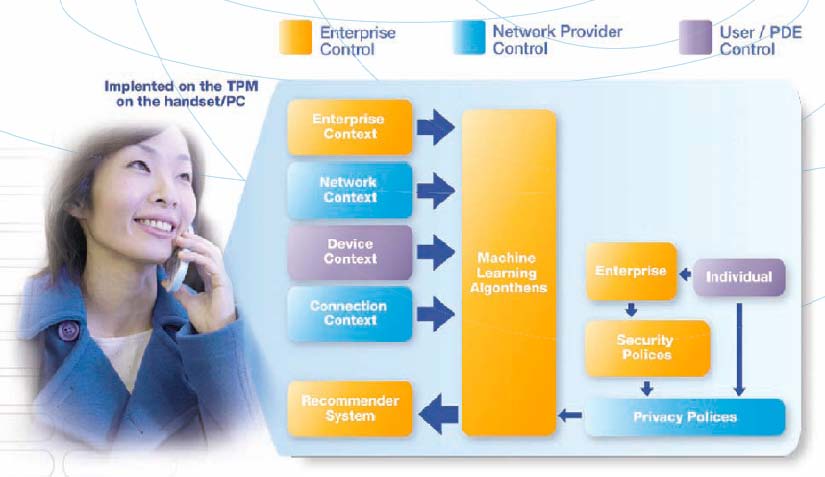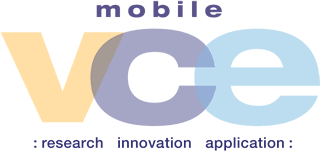Instant Knowledge
"Instant Knowledge: A Secure Autonomous Business Collaboration Service" (part of the Core 4 programme, but running alongside Core 5) exploits the rapidly advancing capabilities of personal devices - Smartphones, Netbooks and MIDs - to enable operators to deliver a new genre of high-value service to their corporate customers, by harnessing the information within and flowing through such devices. These new services will enable new ways of working, deliver operational efficiencies to the enterprise, and new revenues to operators.
The Opportunity
The Smartphone, Netbook and Mobile Internet Device are changing the device landscape, but their new capabilities will enable forwardthinking operators to offer new genres of service, which Instant Knowledge seeks to exemplify.
Large organizations suffer from too much unusable information. The Instant Knowledge service will enable the busy employee to rapidly ‘find a man who can’, the company expert to answer a specialized question, or to create ad hoc teams to address urgent customer needs.
Our personal devices contain and process our calendar and contacts, our phone calls and emails. Instant Knowledge will allow such data to be harnessed, to deliver real value to the telecom operators’ corporate customers. For such services to become reality requires an enterprisegrade and policy-driven architecture, designed from the outset to deliver appropriate security and privacy.
Technical Approach
The Instant Knowledge research programme is based on solid academic foundations, but aims at demonstrating a commercialisable service. The technology base is as follows:
Autonomous Personal Networking
Information harvesting, interpersonal network building, and the associated security and privacy requirements – aka secure social networking. Techniques to extract comms metadata, an ontology to describe and share this information, protocols to establish the personal network and to share information, a method to pro-actively grow the network, and guidelines to ensure usability
Proactive Distributed Recommendation
Distributed algorithms to support a machine learning, context-based, recommender engine, for use within the user’s personal network. Within a wireless network, with so many contributing personal devices, a distributed recommender approach is needed - something not previously been studied in an information-limited context such as this.
Secure Policy-Based Platform
Privacy and trust research underpins system development, requiring threat models, security analysis, and collaborative protocol design. Whilst data filtering schemes can be used to protect privacy while retaining the ability to query a large data set, distribution of the data across low power, partiallytrusted, devices raises new challenges. Security, privacy and trust must be policy driven, to integrate evolving enterprise, telecom operator and individual user needs.

Demonstration & Commercialisation
A Business User Group, with representatives of large corporate customers and the operational business units of the telecom provider companies, is supporting the research team with nontechnical end-user advice, to ensure a viable service with maximum commercial potential.
Practical feasibility is being demonstrated using a Linux-based platform, using Nokia N810 devices with 3G & WiFi access, but with service portability to other devices and platforms in mind. Business User Group involvement is helping guide the demonstrator implementation from both service and end-user acceptance perspectives.
Learn more ......
Industry Briefs, describing a few key advances created by the programme, are available for download:
- Finding Information & People in the Enterprise
- Mobile User Experience Evaluation
- SocialStream: Rich Recording of Social Interactions
